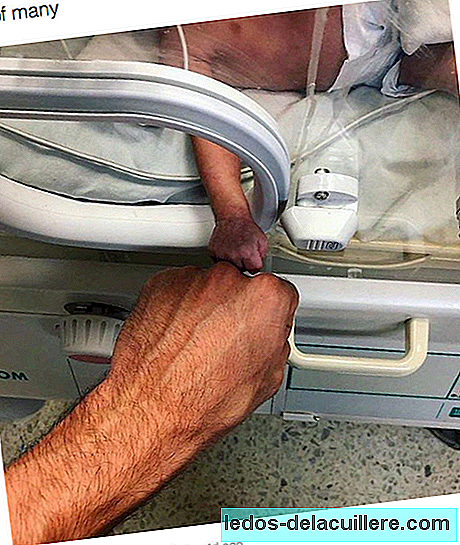After being fined 25,000 euros by the Labor Inspectorate for demanding a pregnancy test prior to hiring women in its workforce, the Iberia airline said in a statement that it will no longer include the pregnancy test in the medical examination of income that was made to the aspirants.
Although the company claims that "it was only done to ensure that they were not at risk", it is a serious lack of discrimination against women. It is the applicant herself who has the right to decide when to announce the pregnancy to the company in the case of being hired. What cannot be is that the company requests it before hiring; nobody (neither company nor employer) may require you to take a pregnancy test to access a job.
An illegal practice
The Minister of Health, Social Services and Equality, Dolors Montserrat, has shown her "maximum absolute rejection" for Iberia's attitude towards women.
This attitude has also been rejected by the Institute for Women and for Equal Opportunities, which has warned that requiring women to perform a pregnancy test in the personnel selection processes is an "illegal" practice and a "serious attack" against their individual and labor rights.

What does the law say?
Article 14 of the Spanish Constitution declares that: “Spaniards are equal before the Law, without any discrimination based on birth, race, sex, religion, opinion or any other personal or social condition or circumstance prevailing”.
Based on the fact that unfavorable treatment at work based on pregnancy, affecting exclusively women, constitute discrimination based on sex proscribed by art. 14 CE, the Constitutional Court has estimated various amparo appeals related to the matter.
For its part, Article 9 of the Maternity Protection Convention, 2000 (No. 183) of the International Labor Organization states:
Every Member must take appropriate measures to ensure that maternity does not constitute a cause of employment discrimination, including access to employment, and notwithstanding paragraph 1 of article 2.
The measures referred to in the previous paragraph include the prohibition of requiring a woman applying for a job undergoing an examination to check whether or not she is pregnant or that you present a certificate of said exam, except when it is foreseen in the national legislation regarding works that:
(a) they are totally or partially prohibited for pregnant or nursing women, or (b) they may present a recognized or significant risk to the health of the woman and the child.
Cabin crew, a risk job
Iberia is aware of the protection of pregnant workers and ensures that "passengers cabin crew, for example, cease their duties from the moment they are pregnant and are temporarily assigned others that do not pose any risk."
Law 31/1995, of November 8, on the Prevention of Occupational Risks in its article 26 protects the worker in matters of occupational health during her situation of pregnancy or recent childbirth and lactation.

In the specific case of airlines, cabin crew work is qualified as a risk profession, so women should not work pregnant. They are permanently exposed to conditions that are not favorable for their health or that of their baby in gestation such as ionizing radiation, poor air quality in the cabin, altitude and ergonomic risks, coupled with demanding shifts that are not compatible with the protection of pregnancy and lactation.
When a cabin crewman becomes pregnant another job is assigned on the ground, to ensure your safety and that of your baby. It happens that it is very good for Iberia to do so, requesting a pregnancy test before being hired is clearly discrimination based on sex.
Iberia I asked all women, regardless of the job they aspired to, even if it was an administrative position on land (as was the case of the woman who reported the case of the airline).
When to communicate pregnancy to the company
There is no legal obligation to communicate pregnancy to the company, much less do it in a job interview. The company does not have to know if you are pregnant or not before being hired.
In the case of being immersed in a process of personnel selection, job search, oppositions or any other factor of incorporation into the labor market, you are entitled to not communicate that you are pregnant. There is no legal obligation to do so and it is a mere matter of business and personal logic.
However, the general recommendation is to inform the company of your pregnancy in time so that it can be organized in order to replace your position in maternity leave.
In the case of a risky job, such as cabin crew, it is advisable to notify it as soon as possible (here is information on how to do it) to prevent risks during the first weeks of pregnancy. But in no case, can you be required to have a pregnancy test as a condition to access a job.












